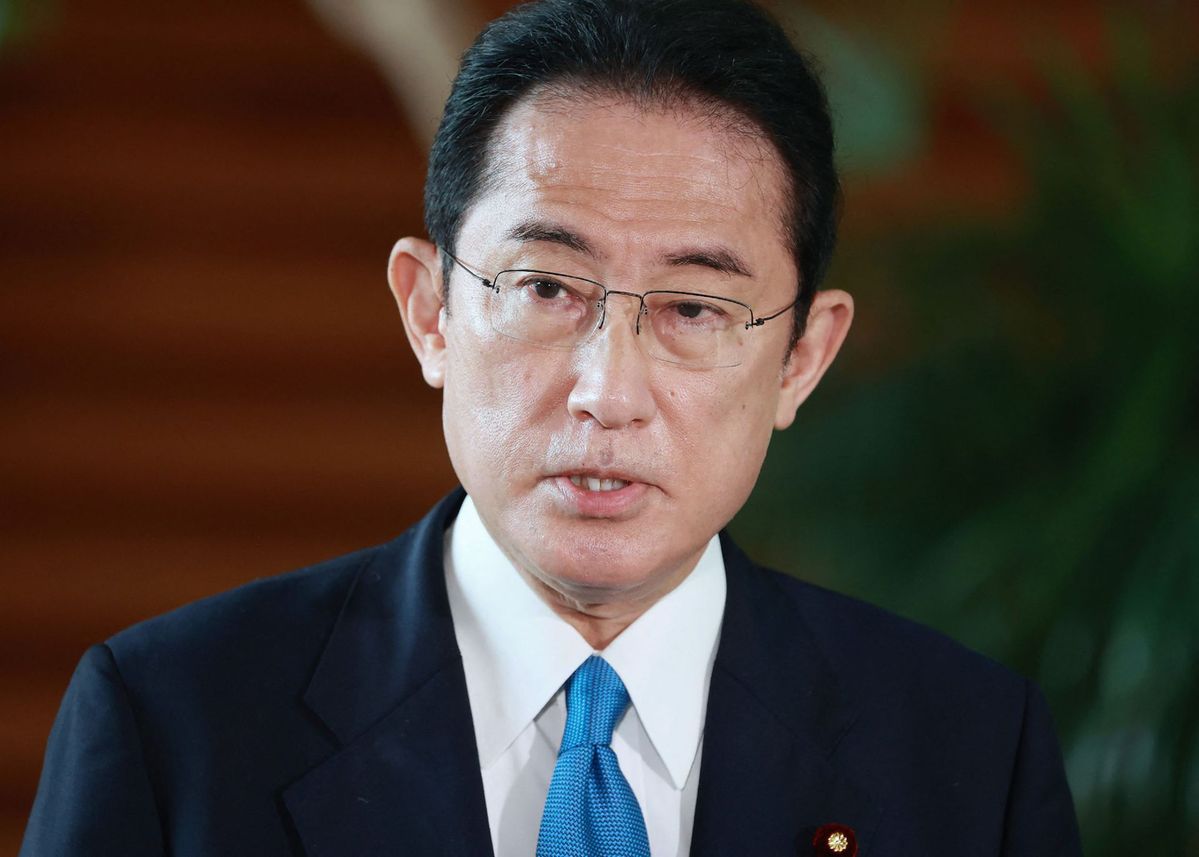Experts dismiss Kishida's speech as 'crisis narrative'


Despite a softer tone on China, Japan's Prime Minister Fumio Kishida used veiled barbs in talking about Beijing at the Shangri-La Dialogue in Singapore, held over three days until yesterday, and experts say that behind it all is a desire to improve his political standing and his country's military capability.
"People create their own demons," said Wang Qi, a researcher of East Asian studies at the Chinese Academy of Social Sciences in Beijing. "By saying 'Ukraine today may be East Asia tomorrow', Kishida has obviously created a demon in his mind, making out that other countries would be terrified to take sides so that a more divided Asia will give Tokyo the chance to shake off shackles of its pacifist constitution."
Kishida, the first Japanese prime minister in eight years to deliver a keynote speech at the Asia security conference, did not criticize Beijing directly, but his 40-minute speech was replete with thinly disguised accusations against China over issues including China's internal affairs such as the Taiwan question.
In the South China Sea, Kishida questioned whether "rules are really being honored". In the East China Sea, Kishida said Japan is taking a firm stand against "unilateral attempts to change the status quo by force" and said "activities not respecting people's diversity, free will, and human rights are taking place" across the Taiwan Straits.
In conclusion, Kishida outlined a plan to "fundamentally reinforce Japan's defense capabilities within the next five years", saying Japan will set out a new national security strategy by the end of the year and secure a substantial increase in Japan's defense budget.
In response, He Lei, former deputy head of the People's Liberation Army Academy of Military Sciences, who also attended the meeting, rejected Kishida's arguments, saying Japanese politicians' suggestions on reinforcing the country's military capabilities are "very dangerous".
Japan was the first to change the status quo in the East China Sea when in 2012 it said it had bought the Diaoyu Islands and sought to unilaterally nationalize the territory.
"This, first of all, was a change of the status quo, and also went against the tacit agreement between the two countries that the dispute concerning the Diaoyu Islands should be shelved," He said, referring to an arrangement reached in the 1970s when Sino-Japanese diplomatic relations were established.
Concerning Taiwan, He warned that Japan would need to "suffer sooner or later" for "meddling" in China's internal affairs.
Wang said Japan is using "crisis narrative", that "a potential conflict may soon break out in Asia", to scare regional countries into taking sides so that a divided Asia is created.
"A divided Asia is better for Japan to advance the Indo-Pacific strategy to contain China, because Japan sees an opportunity to promote its own influence in the process of containment," Wang said.
By playing up the "China threat "Japan wants a stronger military, to raise its defense budget to 2 percent of its GDP as well as an atmosphere in which it can change its pacifist constitution, she said.
"All peace-loving people should see through the smoke and mirrors and stay alert on what Japan is doing, because we all remember what Japan brought to the world the last time it sought to be a strong military power."
Masanari Koike, a former member of Japan's House of Representatives, said Kishida avoided criticizing China directly, unlike on previous occasions, because this time "there was less pressure from the US" and because Kishida "knows that the interests and policies of Southeast Asian countries do not align with those of Japan".
In international relations, "it is meaningful to consider that Japan should play a role as a balancer (not necessarily a kingmaker) to continue gaining more benefits from the other and to maximize its own national interests between China and the US. But now Japan is not so independent and neutral for such a tactical role.
"In addition, the current Japanese political and electoral system depends more on public opinion in which we cannot expect strategic or rational calculation to determine national interests. This is often motivated more by emotion. For example, far fewer Japanese people feel a sense of affinity with China than they do with the US. Thinking that this reality can be changed any time soon is unrealistic."



































